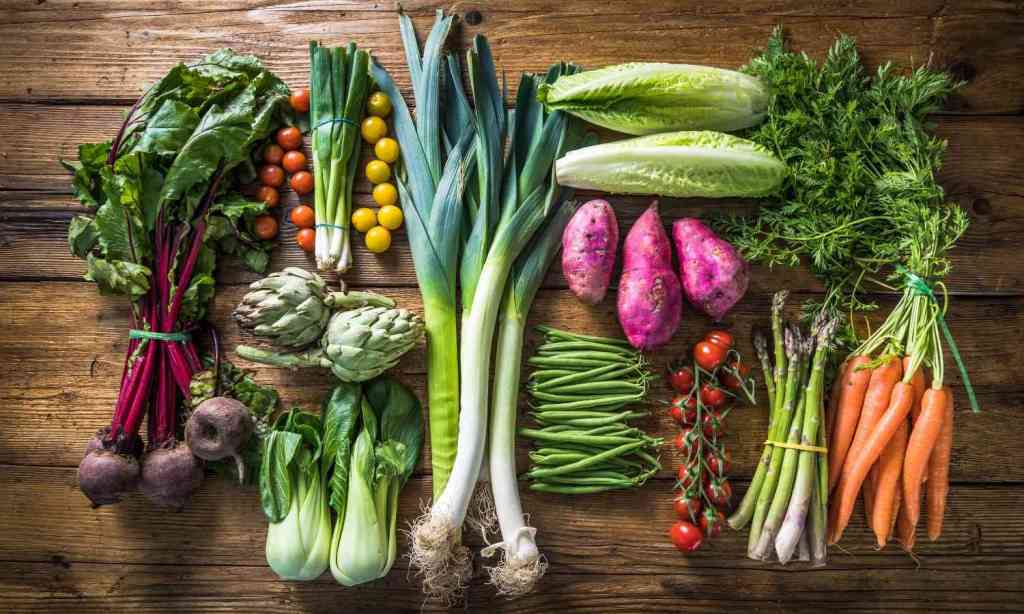The Latch has partnered with Suncorp Bank to deliver sustainability content that helps helps our readers drive positive action in their every day lives.
Eating seasonal fruits and vegetables is proven to have ample benefits on our bodies. They’re harvested when at their ripest, so are naturally fresher, more nutritionally dense, less likely to be imported or refrigerated long-term for transporting, more environmentally friendly and easier on your wallet.
It’s no secret that we live in a hyper-globalised world that allows us to get any products we want at any time of the year. Sure, this process has given us ample access to food, but it has also dimmed our intuitive ability to connect with what is truly in season and when.
The next time you’re at your local supermarket or farmers market, look out for signs that indicate seasonal or regional produce versus produce that is imported from the other side of the world. Australia has a rich and diverse range of products that offers us endless variety, so why not make the most of what we grow here?
There are plenty of online resources where you can find information on seasonal produce, from the government to blogs like Sustainable Table, and also Sydney Markets. Below, you’ll find a brief rundown of what you can buy as the seasons change in Australia.
As a rule of thumb, many experts say that seasonal produce has qualities that boost or aid immunity to protect and nourish us during each specific season. For example, during the colder months, you’ll find ample vegetables in the supermarket that lend themselves to hearty stews or soups that help to warm our bodies in the cold weather. On the flip side, summer sees markets filled with lighter, refreshing fruits and vegetables that are easier on the palate and stomach, and give a boost to our bodies on hot, humid, sweaty days in the sun.

As the seasons transition throughout the year, look out for vegetables left over from the last season that are likely to be marked down. Similarly, keep an eye out for cheaper, ‘ugly’ vegetables that aren’t as popular (but are equally delicious) and usually significantly cheaper.
A Rough Guide to Seasonal Produce
Generally speaking, you’ll see an abundance of certain fruits and vegetables in the cooler months and different ones in the warmer months, though there is still some variation between the specific seasons. Here is a non-exhaustive guide to what you should be filling your trolleys with through the seasons:
- Spring: cherry, papaya, avocado, spinach, endive, Brussels sprout, cabbage, grapefruit, rhubarb, mango, tomato, sweet potato, asparagus, Asian greens, corn, witlof, zucchini, spring onion, peas, pineapple, cumquat, basil, mint.
- Summer: sugar snap, peas, zucchini, zucchini flower, nectarine, mango, pineapple, capsicum, beetroot, peach, passionfruit, fig, blackberry, blueberry, strawberry, raspberry, rambutan, watermelon, avocado, cabbage, celery, tomato, kaffir lime, chives, basil.
- Autumn: fig, avocado, blackberry, persimmon, pomegranate, quince, prickly pear, tamarillo, kiwi fruit, feijoa, lemon, lime, banana, artichokes, eggplant, swede, broccoli, corn, cucumber, spinach, okra, onion, leek, pumpkin, tomato, tarragon, coriander, chervil, sage.
- Winter: pumpkin, sweet potato, parsnip, leek, kale, kohlrabi, mushroom, silverbeet, kiwi fruit, pear, tangelo, custard apple, nashi pear, mandarin, broccolini, broad beans, carrot, cucumber, shallot, turnip, kohlrabi, Brussels sprout.
Related: Yes, It’s Possible to Compost If You Live in an Apartment — Here’s How
Finding out what has grown and sold well at farms is also a great way to start growing your own produce at home, in line with the seasons. If you’ve noticed a good variety of spring onions produced at a nearby farm (a good way to learn this is by visiting your local farmers’ markets and speaking to the farmers), it could be a good indication that your state or area has the right conditions for these vegetables. To test this out, you could keep the stems of the spring onion from the market and try to regrow them from scraps.
Related: From Root to Fruit, Here’s How to Grow Vegetables From Food Scraps (Yes Really)
Buying seasonal produce also helps support local farmers with clearing their stock for the season and also allows you to get the most bang for your buck. You will notice that these items are likely cheaper than internationally imported vegetables, and are likely to be plumper and fresher.
Read more stories from The Latch and subscribe to our email newsletter.







